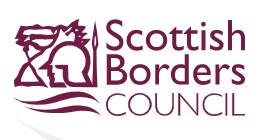Scottish Borders Council to mark Challenge Poverty Week by raising awareness of available support

Scottish Borders Council is supporting this year’s Challenge Poverty Week (2-8 October) by highlighting the wide range of support, information and advice available across the region to support those experiencing financial hardship.
The cost-of-living crisis has brought additional challenges and people may find themselves facing hardship for the first time as a result. Individuals and families could be experiencing poverty, whether through low income, unemployment, ill health, an unexpected change in circumstances or for some other factor out with their control. Whatever the reason, it is important for people to know that help is available from a wide range of organisations.
Councillor Robin Tatler, executive member for communities and equalities, said: “There is already some extremely good work being undertaken to combat the effects of poverty on individuals and families in our local communities. However, I would urge anyone experiencing financial hardship to have a look at the support that is available to them through the Scottish Borders Council website and make sure they get in touch to see how the Council and our many partner organisations may be able to help. It is really important that people take that first step to find out what support they may be eligible for.”
The council’s website provides a range of detailed information about what grants, benefits and support people may be entitled to and how to apply.
This includes help with rent or council tax or access to specific support such as Discretionary Housing Payment (DHP) and the Scottish Welfare Fund. DHP is intended to help claimants who already receive housing benefit or universal credit (housing element) but require further assistance to meet their housing costs. Community care grants and crisis grants are for people experiencing particular difficulties.
For those that are over State Pension age and on a low income, Pension Credit is a scheme that provides extra money to help with living costs. Information about eligibility, what you’ll get, how to claim and report a change of circumstances can be found on the Council’s website.
Debt and money advice, including a financial health check service, is available through local Citizens Advice Bureau.
Financial help is also available during pregnancy and for families with a child up to school age, while free school meals and school clothing grants are available for older children. Education Maintenance Allowance is a weekly payment that aims to encourage young people stay on at school or college.







